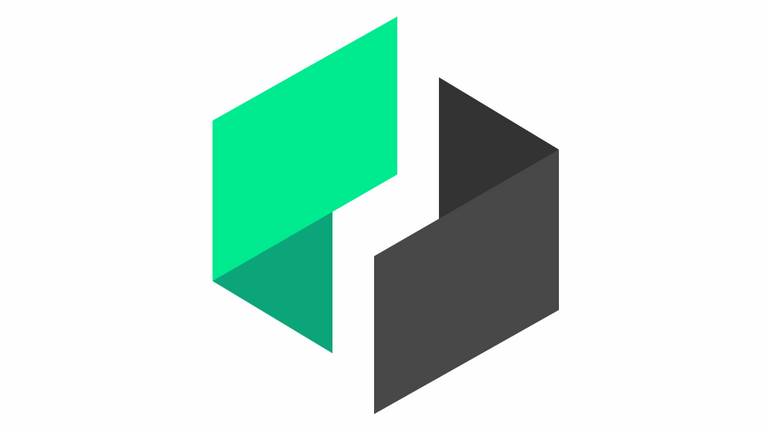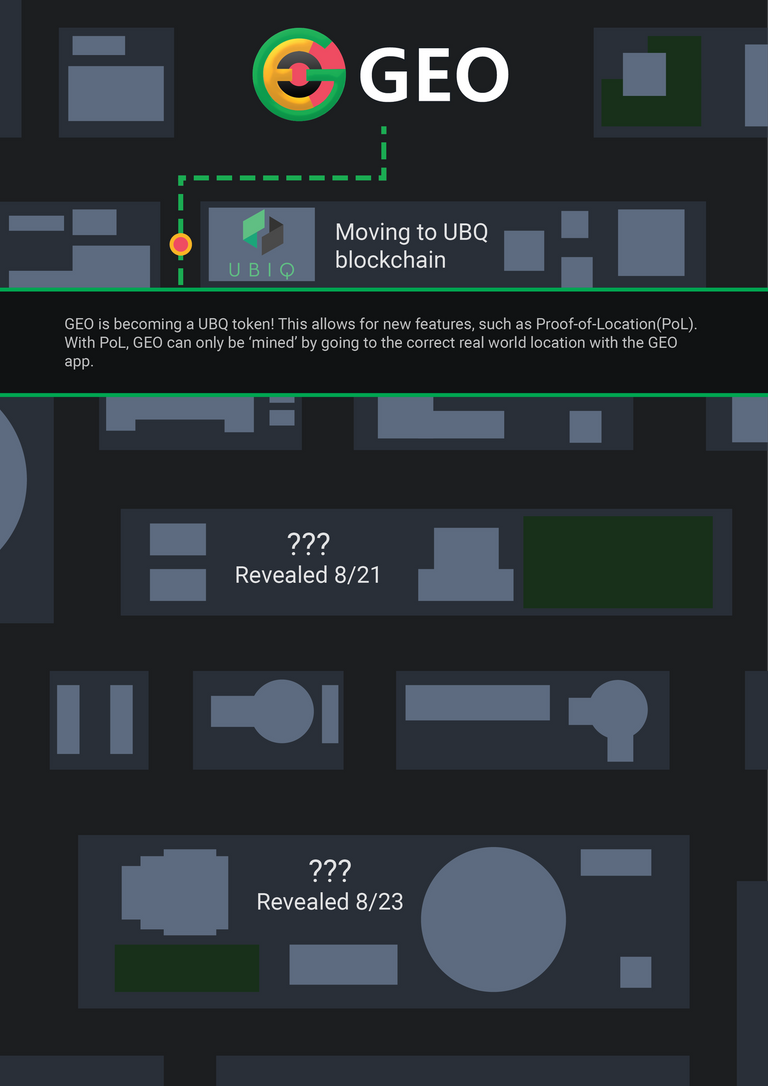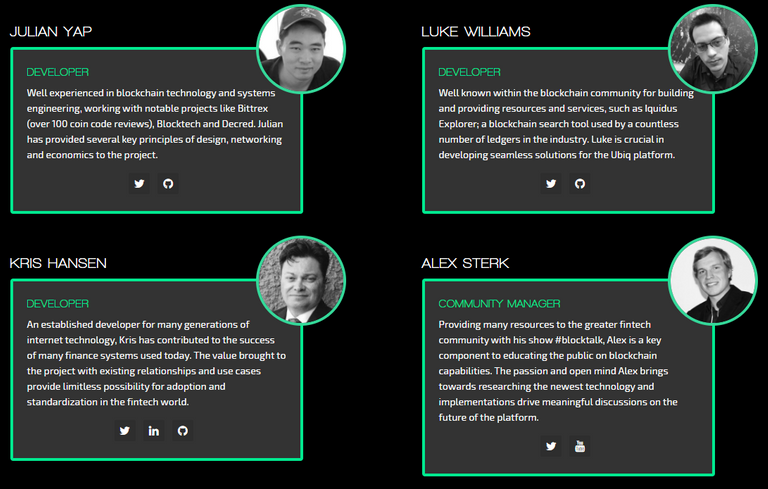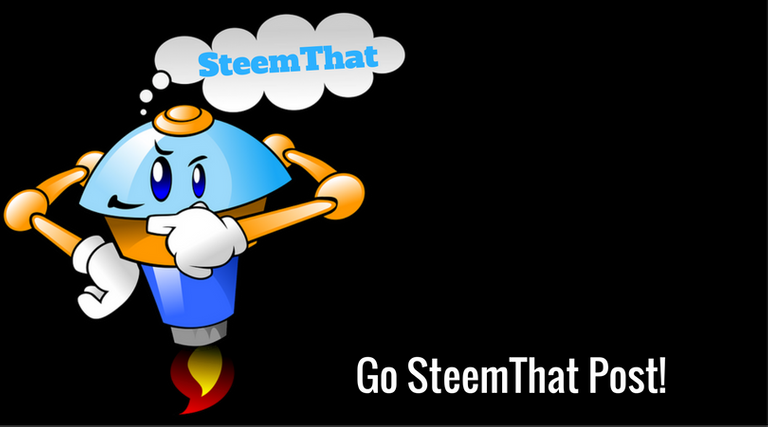In this second and final part, Alex discusses GeoCoin as well as other tokens on Ubiq, the team behind the project, security, governance, and the future of Ubiq. This is the conclusion of our interview, so head over here if you missed Part 1.

I see you just announced that GeoCoin is coming over to Ubiq – maybe you could explain how bringing in new tokens motivates new miners, and how those relate to each other?
Alex: It creates a lot more transactional volume and that’s necessary to make sure the miners are properly incentivized. Our first token was Qwark, which has a daily distribution among their 10,000 users. When we were just starting out you could see our transactions on our block explorer – there were just a couple little spurts of when mining pools were paying out, and then when we had Qwark, it was generating so many more transactions per day and that was creating a significant amount of fees for the miners. Every token that we add is going to improve that.
GeoCoin were with another network and it was hard for them to justify the inflation when they’re not even getting transactions in every block. So when they came as a token to our network, they can be very static. They don’t pay anything to just sit and do nothing, but as they do need more transactional volume they can now be pay per use. They’re now supporting the ecosystem. They’re using all our resources, like the miners and nodes, but they’re also paying fees for their own token, so it becomes a lot more effective that way.
We’re hoping to get a lot more of those, and GeoCoin being the most recent one is a very nice application. We’re very excited about it. It was one of the first app coins that I found out about when I first joined the space.

The recent GeoCoin announcement, sourced from their Twitter feed. View full size here.
Can you give us a quick rundown of GeoCoin, what Proof of Location is and why that’s significant?
Alex: The original GeoCoin network, its innovation was that along with storing location of coins, as in what addresses they’re in, they also stored GPS coordinates – so, longitude and latitude… I forget how big the actual data is, but they have a web app where you write to the coin location such as “it’s now at this spot” and you can drop coins on a map, and if you go to that location, you can then retrieve them.
They’re able to do this on our codebase very easily with smart contracts – you can store whatever data you want on it. They’re now able to have this whole map populated with the same data, from the same coins, but the difference being now is with the inflation that they had on their network and their coin supply. It’s no longer being used to secure the network – they could have gotten rid of it altogether and had 0% inflation, because the GeoCoins that exist today are all that are going to exist forever – but they’re actually going to have a bit of a premine with the swap, and that premine is going to have a smart contract that only allows a certain amount of coins to be withdrawn every day.
Those then be distributed to the map, and the map is going to be filling up with coin so people can go to different locations and landmarks and gather the coins. It’s very much like the Pokemon Go in that aspect, but you can actually get currency instead of virtual monsters!
Haha OK cool. So, with a market cap of over $67 million, how come Ubiq is being developed by a team of four part-timers? Three developers and a community manager at the helm of such a massive technology – are you guys trying to grow the team?
Alex: Well, I’d say that’s more of a question to ask all these other ICOs that are raising oodles of money and then they are building up these massive teams to basically build the same thing, sometimes nowhere near.
But I think it just comes down to the fact that our developers have a lot of passion – there’s more than just the official team. We have a lot of guys who are helping out running services, and that’s the beauty of the no-ICO-no-premine, is that everyone has a fair shot at increasing the value of the coin. Everyone is incentivized by the increase in value of the coin. If I just had a bunch of coins that were given to me, well, me making the coins worth a little more is very self-motivating as once I have a price I am happy with I can just dump them and leave.
So, our team is very small. Julian has recently gone full-time working on Bittrex and still helps out part time on Ubiq, but he’s much more of an advisor role now. Then Lucas is developing full-time – he actually has his own company and that’s what Qwark is all centred around too, with a couple of other devs in the background.

Experience and passion underpin the Ubiq team. View full-size here. Image sourced from https://ubiqsmart.com/#team.
There is a lot more than meets the eye, and that is kind of by design too. If people feel that they’ve got to be included in one of our companies to develop on Ubiq, well, it doesn’t suit the narrative of decentralization very well. We now have people coming on from the Ethereum Commonwealth. He organized an ICO on Ethereum Classic and he’s developing a lot of services for Ethereum Classic, but he wants to do double-duty and help out our community as well. He’s going to be building things in parallel, like a decentralized exchange and like the Ethereum Name Service – that’s where we can share a lot of resources.
That’s probably why it looks like we have a lot going on from such a small team: because we are very much an open-source project. We’re not some startup company that has to maintain, say, secretaries and chief financial officers and all that. We’re not exactly in that mould right now. It’s something that over time we will be developing once we actually have something that is a lot more resource-intensive.
I’m not sure if you read our last quarterly report – one of the main use cases for wanting to develop for Ubiq is called Signum. Signum is a secure access device very similar in form factor to something like a Ledger hardware wallet. We see that there’s a massive demand for hardware in this space – secure key management is really important. We’ve gone one step further than that and actually created a device for offline signing of transactions and doing smart contract interaction, all from a small keyfob device.
We’ve put a fingerprint reader on it that hashes it all on the device, so your fingerprint is not stored by us or even on the blockchain. With this device, we can do secure access, so something like when you log in to Bittrex you type in a 2FA code, like a one-time password, and that’s kind of the extent of what security is today – if you create a trusted pair with whatever you’re trying to sign in to, type the password in, and then they log you in.
Well, that’s always going to be interceptable. The fact that I can type a password to log in means that there’s something being inputted that can be intercepted. So, we looked at something like a transaction. A transaction is something that’s permissionless and the keys are never revealed, and you can sign any message you want within the transaction. We’re developing a solution where you can log in to any service using a transaction. If I want to log in to Bittrex, or… well, the original usage for this was actually banking executives. These guys want to sign multi-million-dollar transactions on the go, and they want to use their personal phones or mobile devices for it, well, that’s terrible in terms of security.
But if you have them with a secure device that can secure transactions using a fingerprint, and then broadcast it to the Internet without ever leaving the keys from the device, it becomes a much more robust security solution. Now, the blockchain is acting like a notary saying, “yes, this person has signed off on this,” and the client or whatever software you’re signing off on, it doesn’t even need to run an authentication server anymore – which is where a lot of the hacking happens: at the central point of a notary.
So, all they’d have to do is run a Ubiq node, scan for relevant transactions, and then they can log in based on that. This is sort of our main focus right now: building this security solution that will actually get Ubiq as a software solution in a number of major companies in Canadian and American banking.
Is this something you’ve been promoting widely yet?
Alex: Other than the quarterly report where we outlined it, and the next quarterly report which will release in the next week and a half, we will have some more info on our most recent prototype. We have a patent on it and it’s something we were talking about doing an ICO with, but it’s really kind of like, “oh well, if we raise $10 million to develop this hardware, people are going to notice that,” and it would be pretty easy for competitors to come out of the woodworks.
We’re trying to be a little bit more low-key on it and developing use-cases on it, but some of the stuff we’re outlining in the quarterly report is two major projects that are going to be beta testing this device and doing the final development. Then we can do a final sale to eventually launch this product in the fall.
Are you guys open to getting more staff onboard? What can people do if they are keen to contribute?
Alex: I’d say that if you see any cool Ethereum dApps that you want to recreate, you can do it on Ubiq quit easily. We’re always looking to see cool dApps come out, or even just people playing around. If you’re wanting to learn more, I think just come to the community and contribute to the conversation. When people get together and share ideas, well, that’s what open-source is.
I get a lot of people approaching me wanting to do an ICO, but you need to have a bit more of a technical aspect to the project too, so if you want to get involved just start playing around with smart contracts, getting to know the new standard.
What is the future of Ubiq – where do you see it going in the long-term?
Alex: With the technology, I think we’ll be adding elements of Proof of Stake, but not being full Proof of Stake. We’ve seen a lot of really good examples of hybrids, Decred being one. That’s really good for security and new advances in technology, as well as for governance. That’s what we’re really looking for right now – we don’t have a heavy need for governance right now because our community can get together and organize very well – but we understand that as we grow bigger, that’s going to be one of the main things we’ll have to try and solve.
We’ll be doing some coin distribution, so if you own Ubiq and have an address, you’ll be airdropped vote tokens or community tokens, and that will be your form of governance. That’s something that’s happening in the next six months. It’s going to open up a lot of doors for us, because with the ICOs that we are doing, we’ve included things like a network development fund, so APX generates profit and they deposit it in some multi-sigs that we’re going to have the community vote on.
Since we don’t have traditional funding methods and the network needs to become more DAO-like, part of that is financing and the voting on financing. That will be a big part of it.
When you say “APX”, what are you talking about there?
Alex: APX is another token on the Ubiq network. There’s Qwark, APX and now there’s Geo. We’ve got two more that are coming: BitSeeds and Sphere. Those will all be in the report that’s coming out this week.
Awesome, Alex – well, I’ve learned a lot and I think a lot of other people are going to learn a lot about Ubiq from this, so thanks for taking the time.
Alex: Cool – if you have any other questions, feel free to ask on Slack. Thanks!
Follow Alex on Twitter at https://twitter.com/alex_sterk. You can learn more about Ubiq from the official site at https://ubiqsmart.com/, read more from The Ubiq Report on Medium, and stay up to date with latest Ubiq news by following on Twitter at https://twitter.com/ubiqsmart. And if you’re interested, why not join the community at http://slack.ubiqsmart.com/.
Previous:
Interesting People #18: Alex Sterk, Community Manager on Ubiq
Next:
Interesting People #20: Louis Castle on developing DragonStrike and other D&D classics
If you came across this interview after it was published, you can find the Ubiq Quarterly Report August 2017 here:
https://medium.com/the-ubiq-report/ubiq-quarterly-report-august-2017-e6484a536b8d
Most excellent post! Ive been mining UBIQ for about 2 and a half months and believe in its future and team.
Resteemed. :)
Awesome - thank you!
Yep, it's a great platform from what I've been able to tell so far. Really excited about what's to come.
Which mining pool are you using?
ubiqpool.io :)
This is me: https://ubiqpool.io/#/account/0x3eb5d3cc5e0c92a08e0f6159d2c660a4b4e458d2
Keeping the network going little by little. :)
I have also made a small post about it: https://steemit.com/cryptocurrency/@stimmedmarine/pokemongo-as-a-cryptocoin-geocoin-is-here-for-real
Nice, thanks for the share :)
This post recieved a vote from @minnowpond. For more information click https://steemit.com/steemit/@minnowpond/boost-your-rewards-with-minnowpond
Congratulations @badastroza! You have completed some achievement on Steemit and have been rewarded with new badge(s) :
Click on any badge to view your own Board of Honor on SteemitBoard.
For more information about SteemitBoard, click here
If you no longer want to receive notifications, reply to this comment with the word
STOPThis post received a 3.5% upvote from @randowhale thanks to @badastroza! For more information, click here!
This post was resteemed by @resteembot!
Good Luck!
Learn more about the @resteembot project in the introduction post.
This post has received a 27.27 % upvote from @lovejuice thanks to: @badastroza. They have officially sprayed their dank amps all over your post rewards. GOOD TIMES! Vote for Aggroed!
You Are An Excellent Steemian. This post has received a 50.00 % upvote from @steemthat Return the favor and SteemThat Person Back: @badastroza. .
.
Using @steemthat Is Easy. Just Transfer 0.010 to @steemthat and The Steemit Link You Want Upvoted In The Memo.
This post has received a 11.26 % upvote from @booster thanks to: @badastroza.
This post has received a Bellyrub and 52.49 % upvote from @bellyrub thanks to: @badastroza. Send SBD to @bellyrub with a post link in the memo field to bid on the next vote, every 2.4 hours. Be sure to vote for my Pops, @zeartul, as Steem Witness Hope you enjoyed your bellyrub!
Hey - my last transfer to you to upvote https://steemit.com/ubiq/@badastroza/interesting-people-18-alex-sterk-community-manager-on-ubiq has not happened yet. It was also for a full upvote - can you check your history please? Thanks :)
Resteemed and 100% upvoted. Thank you for using my service!
Read here how the new green bot from Berlin works.
@resteem.bot
This post has received a 21.41 % upvote from @nettybot thanks to: @badastroza.
Send 0.100 SBD to @nettybot with a post link in the memo field to bid on the next vote.
Oh, and be sure to vote for my owner, @netuoso, as Steem Witness
Have a great day!
@badastroza got you a $1.75 @minnowbooster upgoat, nice! (Image: pixabay.com)
Want a boost? Click here to read more!
Very good article. Thanks for bringing this to our attention. The decision to buy a coin should be based on real analysis of the coin. I found that people keep buying coins without have any knowledge of them. This is considered high risk. I really advice people to take a look at: https://www.coincheckup.com The site that lets you check all there is to know about the team, product, communication transparency, advisors and investment statistics on every crypto.